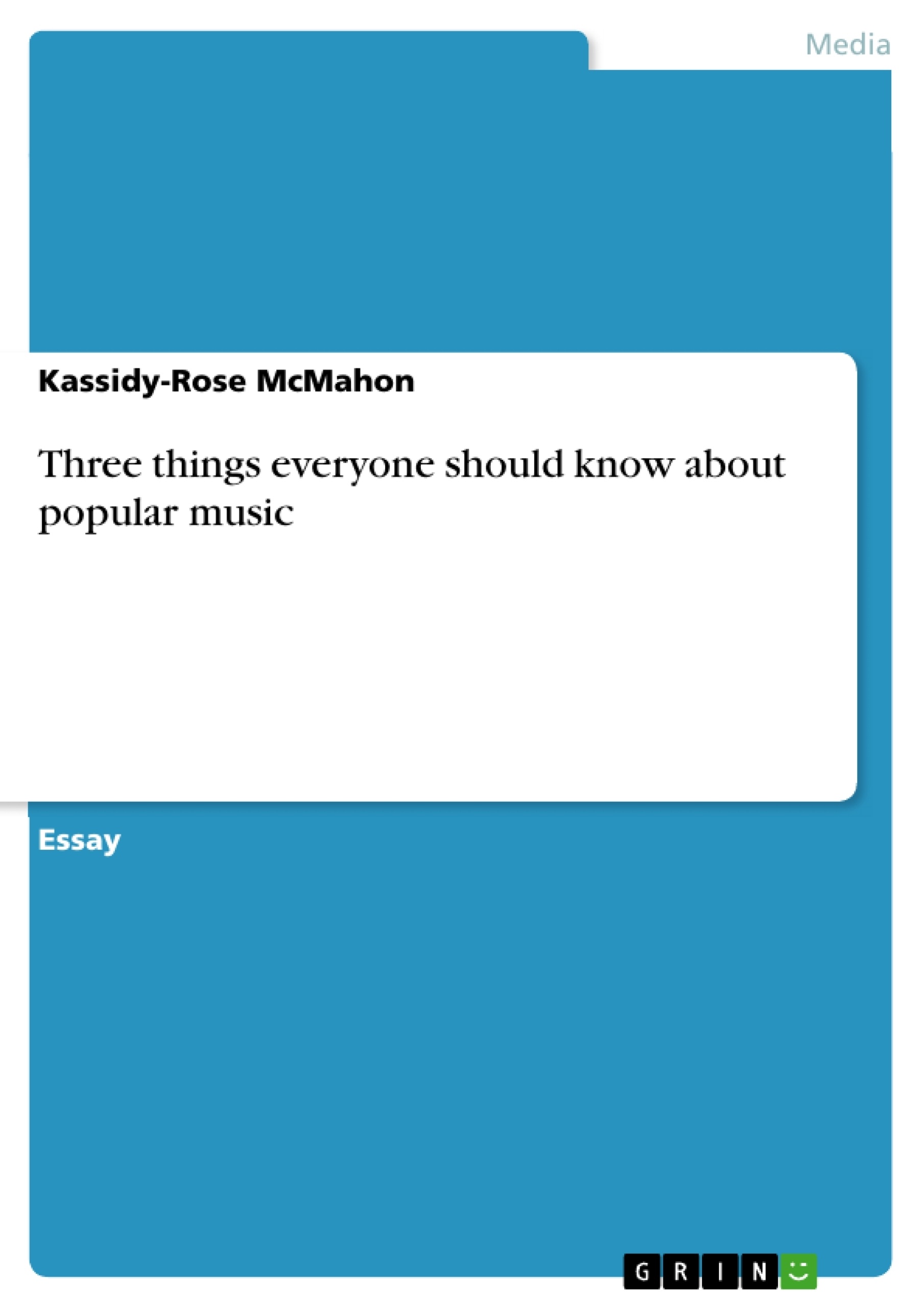This essay discusses three fundamental points everyone must know about popular music. Firstly, popular music is a reflection of society; secondly, there are many benefits to engaging in popular music culture; finally, the genre is currently under threat. The term popular music first appeared in a publication by William Chapple titled Popular Music of the Olden Times in 1855 but it was not until the 1930s and 1940s until the term gained wider currency (Shuker, 1998). Since then, the definition of popular music has been heavily debated by scholars in the musical community due to the genre’s complexities and ambiguities, which create challenges when deciding what music can be regarded as popular (Middleton, 1990). A broad description of the genre is provided by Shuker who explains, “essentially, all popular music consists of a hybrid of musical traditions, styles, and influences, and is also an economic product which is invested with ideological significance by many of its consumers”.
It is important for everyone to know that popular music is a reflection of society because people can learn about history through music, which serves as an invaluable medium for documenting the evolution of society. A fantastic example of this is the song Over the rainbow is where I want to be, which was renamed to Somewhere over the rainbow. The song was written by Harold Arlem with lyrics by Yip Harburg and released in 1939 with July Garland as the vocalist. The lyrics perfectly capture the mood of the 1930s, which was a time of widespread unemployment, misery and despair known as the Great Depression.
Inhaltsverzeichnis (Table of Contents)
- Popular Music is a Reflection of Society
- Benefits of Engaging in Popular Music Culture
- Popular Music Genre is Under Threat
Zielsetzung und Themenschwerpunkte (Objectives and Key Themes)
This essay explores three fundamental aspects of popular music: its reflection of society, the benefits of engaging with its culture, and the current threats it faces.
- Popular music as a historical and social document
- The positive impact of popular music on health and well-being
- The challenges of piracy and illegal downloading in the digital age
- The evolution and future of popular music
- The importance of ethical consumption and supporting the music industry
Zusammenfassung der Kapitel (Chapter Summaries)
- The first section explores the idea that popular music serves as a reflection of society. It uses the example of the song "Somewhere over the rainbow" to illustrate how music can capture the mood and anxieties of a particular era, in this case, the Great Depression.
- The second section delves into the benefits of engaging with popular music culture. It presents research findings that demonstrate the positive impact of music on the immune system, stress levels, and overall mood.
- The third section addresses the current threat to the popular music genre posed by piracy, illegal downloading, and file sharing. It discusses the challenges faced by artists and the music industry in the digital age and highlights the importance of legal music consumption.
Schlüsselwörter (Keywords)
Popular music, society, history, health, benefits, immune system, stress, mood, piracy, illegal downloading, file sharing, digital music, ethical consumption, music industry.
Frequently Asked Questions
How does popular music reflect society?
Popular music serves as a historical document; for example, "Somewhere Over the Rainbow" captures the mood of despair during the Great Depression in the 1930s.
What are the health benefits of popular music?
Research shows that engaging with music can boost the immune system, reduce stress levels, and improve overall mood and well-being.
When did the term "popular music" first appear?
The term was first used in 1855 by William Chapple, but it didn't gain wide currency until the 1930s and 1940s.
What are the main threats to the popular music genre today?
The genre faces significant challenges from digital piracy, illegal downloading, and unauthorized file sharing, which threaten the industry's economic stability.
Why is ethical consumption important in music?
Supporting artists through legal channels ensures that the music industry can continue to evolve and produce new content in the digital age.
- Citation du texte
- Bachelor of Music Kassidy-Rose McMahon (Auteur), 2017, Three things everyone should know about popular music, Munich, GRIN Verlag, https://www.grin.com/document/369877



